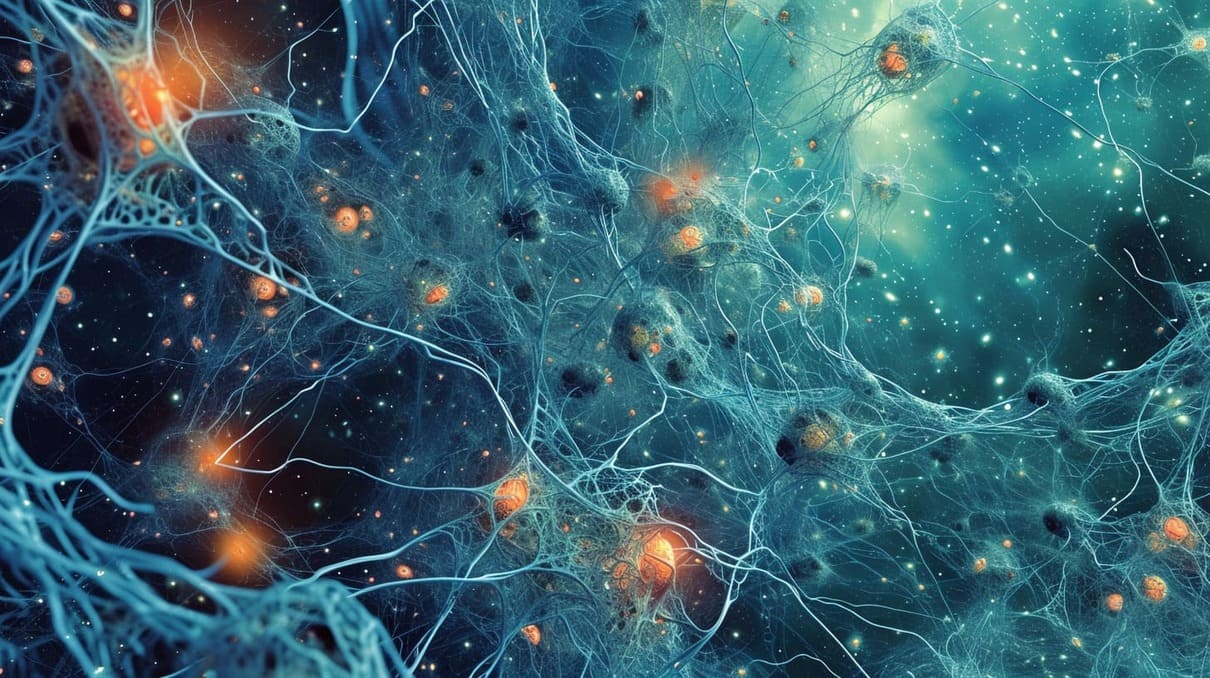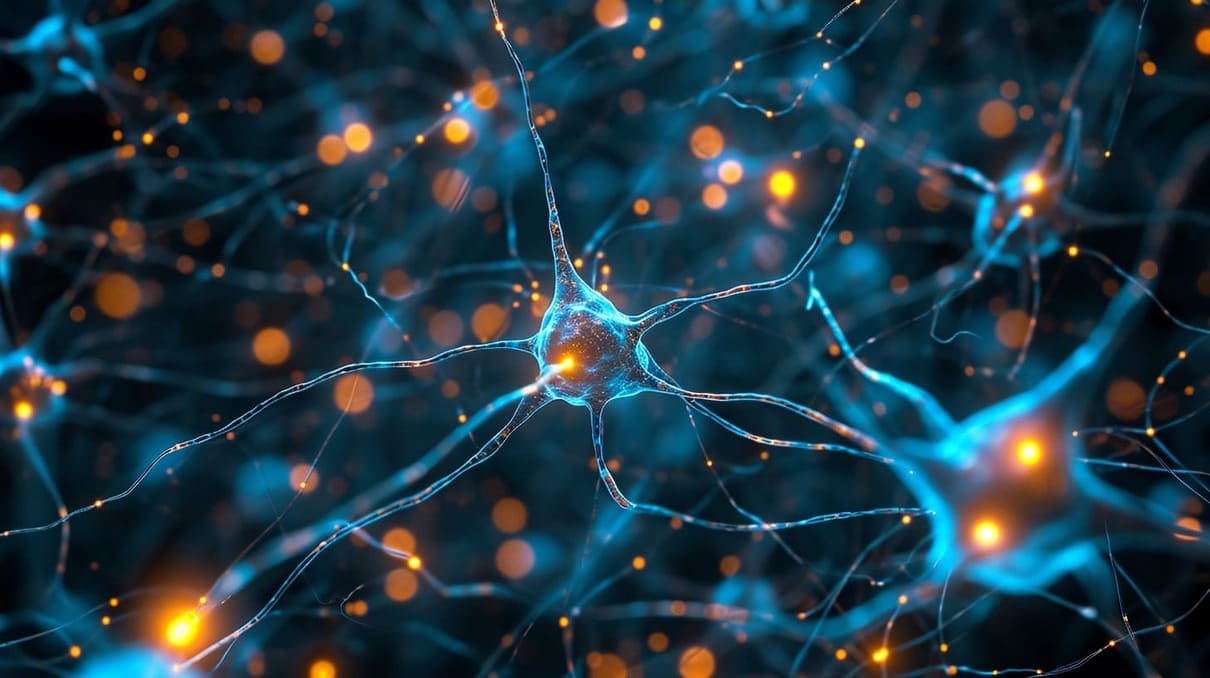Interconnectedness is a fundamental concept that permeates every aspect of our lives, shaping our social interactions, economic systems, and environmental sustainability. In this comprehensive article, we will explore the profound impact of interconnectedness on our daily experiences and the world at large.
From promoting empathy and understanding to fostering innovation and progress, embracing interconnectedness offers a myriad of benefits. Conversely, ignoring interconnectedness can lead to increased conflict, stunted growth, and environmental degradation. We will also delve into practical strategies for cultivating a sense of interconnectedness, including mindfulness, education, and global activism.
What Is Interconnectedness?
Interconnectedness, in its essence, refers to the intricate web of relationships and dependencies that exist within and between various systems, including nature, society, and the world at large.
When diving into the study of nature, interconnectedness becomes evident in the delicate balance of ecosystems, where every living organism plays a crucial role in maintaining the harmony of the environment. Society, too, exemplifies interconnectedness through its network of social, political, and economic interactions, shaping the collective consciousness and influencing individual behaviors.
In today’s globalized world, the concept of interconnectedness transcends geographical boundaries, as events in one part of the world can have repercussions that reverberate across continents, emphasizing the interconnectedness of our world like never before.
How Does Interconnectedness Affect Our Lives?

The impact of interconnectedness on our lives is profound, influencing how individuals interact within society, navigate challenges such as the COVID-19 pandemic, and cultivate a sense of transcendental awareness amidst the interconnected nature of our existence.
It has become increasingly evident that interconnectedness has both direct and indirect effects on individuals and society. On a personal level, individuals are more aware of their interdependence, fostering a deeper empathy and understanding of the experiences of others. In the context of global challenges like the COVID-19 pandemic, this heightened sense of interconnectedness has manifested in collective efforts to support one another, ranging from community initiatives to international collaborations.
The interconnected nature of our world has led to rapid dissemination of information and ideas, inspiring innovation and cooperation across borders.
There are also challenges posed by this interconnectedness, such as the overwhelming influx of information and the potential for disinformation to spread rapidly.
All in all, our interconnectedness shapes our perception of the world, influences the decisions we make, and offers both opportunities and challenges for our personal and collective well-being.
Social Interconnectedness
Social interconnectedness delves into the bonds of compassion and collective action that bind individuals and communities together, fostering a sense of unity and shared purpose in addressing societal challenges.
It is through acts of solidarity and empathy that people transcend differences and work towards building a more inclusive and cohesive society. In recent years, there have been numerous instances where communities have come together to support those affected by natural disasters, such as hurricanes, earthquakes, and wildfires. These heartwarming displays of compassion exemplify the power of social interconnectedness in providing assistance and relief to those in need.
Economic Interconnectedness
Economic interconnectedness reflects the intricate ties and dependencies that define the global economy, highlighting the interplay between nations, industries, and the interconnected world of commerce and trade.
This interconnectedness is fundamental to understanding the complexities of international relations and global economic systems. Globalization has further deepened these interdependencies, as nations and industries become more intricately linked through supply chains, investments, and trade agreements. The ripple effect of economic decisions in one part of the world can reverberate across continents, impacting markets, employment, and overall prosperity. The ever-evolving landscape of interconnected economies requires a nuanced approach to policy-making and international cooperation to address challenges and harness opportunities.
Environmental Interconnectedness
Environmental interconnectedness underscores the delicate balance and interrelatedness of ecosystems, highlighting the profound impact of human activities on the interconnected nature of the environment and natural resources.
This intricate relationship between human activities and the environment calls for a comprehensive understanding of how our actions reverberate through the interconnected web of life. Notably, the overexploitation of natural resources, deforestation, and pollution disrupt the equilibrium of ecosystems, leading to cascading effects on biodiversity and climate.
As we grapple with these challenges, it becomes imperative to prioritize conservation and sustainability to safeguard the resilience of the environment and secure the well-being of future generations. Recognizing and addressing this complexity is pivotal for ensuring the health and longevity of our planet.
What Are The Benefits Of Embracing Interconnectedness?

Embracing interconnectedness yields a myriad of benefits, fostering compassion, encouraging collaboration, and nurturing a sense of transcendental awareness that transcends individual perspectives to embrace the interconnected nature of existence.
When individuals recognize the interconnectedness of all beings and the environment, they become more empathetic and compassionate towards others, leading to deeper connections and a harmonious community. This compassion also fuels collaboration and cooperation, inspiring individuals to work together for the greater good.
By cultivating a transcendental awareness, people can rise above their personal concerns and see the interconnected web of life, fostering a greater sense of well-being and contentment. Self-awareness within the context of interconnectedness nurtures a sense of individual responsibility towards the collective, bringing about a positive transformation in society.
Promotes Empathy and Understanding
Embracing interconnectedness promotes empathy and a deeper understanding of diverse perspectives, fostering a collective action approach that transcends individual boundaries and fosters unity.
When individuals recognize and appreciate the interconnectedness of their experiences, they become more attuned to the emotions and challenges faced by others. This heightened empathy creates a foundation for meaningful connections and a shared commitment to uplifting one another. Through embracing interconnectedness, communities can navigate through societal issues with a collaborative spirit, pooling resources and expertise to address collective challenges.
Encourages Collaboration and Cooperation
The ethos of interconnectedness encourages collaboration and cooperation, nurturing a culture of shared responsibility and mutual support within society and across various domains of human endeavor.
One notable arena where this ethos thrives is in the workplace, where teams leverage interconnectedness to pool their expertise and resources, ensuring collective success. Employees recognize that their individual contributions play a vital role in achieving common goals, fueling a spirit of cooperation and mutual support.
The interconnectedness of global economies highlights the significance of collaborative efforts between nations and organizations. Shared responsibility for addressing environmental issues, enhancing healthcare access, and promoting sustainable development underscores the need for interconnectedness on a global scale.
In education, interconnectedness leads to innovative approaches that emphasize the collective growth and development of learners. Embracing a collaborative learning model, educators facilitate an environment where students support each other’s progress, fostering a shared responsibility for knowledge dissemination and acquisition.
Fosters Innovation and Progress
Interconnectedness fosters an environment ripe for innovation and progress, with the interconnected world serving as a catalyst for the exchange of ideas, knowledge, and advancements across diverse spheres of human activity.
This interconnectedness has significantly impacted various domains such as technology, business, and culture. In the technological realm, it has led to collaborative efforts among global experts, enhancing research and development. This collaborative environment has fueled the creation of cutting-edge technologies and solutions, paving the way for transformative breakthroughs.
What Are The Consequences Of Ignoring Interconnectedness?

Ignoring interconnectedness can lead to dire consequences, including increased conflict and division, hampered growth and development, and adverse effects on the environment due to the neglect of the interconnected nature of our world.
When nations and communities fail to recognize the interconnectedness of their actions and dependencies, it often results in conflicts escalating to unsustainable levels. Just as a lack of understanding between individuals can lead to misunderstandings and disputes, a failure to appreciate global interconnectedness can lead to geopolitical tensions, trade disputes, and even armed conflicts. These conflicts not only disrupt the social fabric but also impede progress and development on all fronts.
The disregard for interconnectedness hinders the environmental protection efforts, leading to irreversible damage. For instance, the disregard for the interconnectedness of ecosystems has led to deforestation, habitat destruction, and climate change, imperiling the delicate balance of natural processes. The consequences of these actions ripple across the entire planet, impacting vulnerable ecosystems and species while intensifying natural disasters and resource scarcity.
Increases Conflict and Division
The disregard for interconnectedness can exacerbate conflict and division within society, fracturing communal bonds and undermining efforts for collective progress and well-being.
When individuals and groups fail to recognize the intricate web of relationships and dependencies that sustain a community, they may act in ways that disrupt the delicate balance necessary for harmony and cooperation. Take, for instance, the impact of economic policies that prioritize individual gain over the welfare of the broader society. Such decisions can widen the wealth gap, amplify social inequalities, and breed resentment among different segments of the population.
Political polarization often stems from a lack of understanding of how various policies and actions ripple through different sectors of society. Without acknowledging interconnectedness, divergent political ideologies can lead to animosity, obstructing the spirit of collaboration essential for effective governance and progress.
Hampers Growth and Development
The neglect of interconnectedness can hamper growth and development, particularly in the context of the economy and global challenges such as the COVID-19 pandemic, impeding efforts to address shared concerns and pursue collective advancement.
The lack of interconnectedness between various sectors of the economy can lead to inefficiencies and missed opportunities for collaboration. For instance, in the wake of the pandemic, the disruption of global supply chains highlighted the intricate web of dependencies between different nations, affecting trade, production, and overall economic stability. This lack of interconnectedness not only hampers recovery efforts but also exposes vulnerabilities in the system.
Similarly, in addressing global challenges such as climate change, a failure to recognize the interconnectedness of ecosystems and human activities can hinder effective solutions, perpetuating environmental degradation and socioeconomic disparities.
Negatively Impacts the Environment
The failure to acknowledge interconnectedness can lead to negative impacts on the environment, disrupting the delicate balance and interconnected nature of ecosystems, and contributing to ecological degradation and loss of biodiversity.
In recent years, numerous real-world examples have manifested the consequences of neglecting the interconnectedness of ecological systems. For instance, the decline of bee populations due to pesticide use has disrupted pollination, affecting the reproduction of various plant species and ultimately influencing the entire ecosystem. Similarly, deforestation has led to habitat loss for countless species, triggering a domino effect on food chains and causing imbalances in biodiversity.
This lack of understanding the intricate connections within ecosystems has also been highlighted through the impact of climate change on marine life. Rising sea temperatures and ocean acidification have systematically disrupted the populations of marine organisms, with cascading effects on the broader marine environment and its intricate web of life.
How Can We Cultivate a Sense of Interconnectedness?

Cultivating a sense of interconnectedness involves practicing mindfulness and gratitude, educating ourselves about different perspectives, and taking action to address global issues, fostering a holistic approach to embracing our interconnected world.
Mindfulness plays a crucial role in connecting us to the present moment and to others around us. It allows us to develop a deeper understanding of our interconnectedness and cultivates a sense of empathy and compassion.
Education enables us to appreciate diverse viewpoints, promoting inclusivity and understanding. Proactive engagement with global issues, whether through volunteer work, activism, or sustainable living practices, amplifies our awareness of our shared humanity and the importance of collective action. Embracing these strategies can lead to a greater sense of interconnectedness in our communities and the world at large.
Practice Mindfulness and Gratitude
Practicing mindfulness and expressing gratitude fosters a deeper awareness of interconnectedness within individuals and society, nurturing a sense of appreciation for the interdependent nature of our world.
This state of heightened awareness can lead to a profound shift in perspective, as individuals begin to recognize the inherent connections between themselves, others, and the environment. By being mindful of their thoughts, emotions, and actions, individuals develop a greater capacity for empathy and understanding, which in turn contributes to a more cohesive and compassionate society.
Educate Ourselves About Different Perspectives
Educating ourselves about different perspectives and diverse worldviews is pivotal in nurturing a sense of interconnectedness, fostering empathy, and understanding the interconnected nature of human experiences and beliefs.
Having a comprehensive understanding of various cultural, social, and historical backgrounds enables individuals to appreciate and respect the diversity present within their communities and beyond. By embracing various viewpoints, individuals become more adept at navigating complex social dynamics and building meaningful relationships with people from different walks of life.
Take Action to Address Global Issues
Taking proactive action to address global issues reflects a commitment to interconnectedness, demonstrating a collective responsibility and a recognition of the interconnected nature of our world, particularly in the face of challenges such as the COVID-19 pandemic.
As individuals, we can contribute to positive change by embracing a proactive mindset, recognizing that our actions have ripple effects that extend beyond our immediate surroundings. By nurturing a sense of responsibility to our global community, we can engender a culture of collaboration and solidarity, essential for overcoming the complex web of global challenges.
The COVID-19 pandemic has underscored the urgent need for coordinated efforts, illustrating how interconnectedness magnifies the impact of our collective actions. Embracing proactive measures in addressing healthcare, environmental sustainability, and social justice can generate lasting and meaningful progress in our interconnected world.
Final Thoughts
The concept of interconnectedness underscores the power of collective action and the recognition of our shared destiny within an intricately woven world, serving as a catalyst for unity, progress, and the well-being of all.
When individuals come together with a common purpose, their combined efforts can create profound change. This was exemplified in the global response to environmental challenges such as the Paris Agreement, where countries collaborated to address climate change and preserve the planet for future generations. Similarly, the interconnectedness of economies was highlighted during the recent pandemic, demonstrating how the shared fate of nations can prompt coordinated efforts to combat the crisis.
- In social movements for equality and justice, the momentum of interconnectedness has been evident. People from diverse backgrounds unite to advocate for human rights, fostering a sense of solidarity that transcends individual differences.
- These examples emphasize that by acknowledging our interconnectedness, we open the door to enhanced collaboration, innovative solutions, and a more harmonious global community.
Frequently Asked Questions
What is interconnectedness?
Interconnectedness refers to the state of being connected or linked together in a complex or intricate way.
How does interconnectedness play a role in our daily lives?
Interconnectedness is a fundamental aspect of our world and impacts everything from our relationships, economies, and even the environment.
Can interconnectedness be both a positive and negative force?
Yes, interconnectedness can have positive effects, such as promoting collaboration and cooperation, but it can also have negative consequences, such as the spread of diseases or economic downturns.
What are some examples of interconnectedness in nature?
Natural systems, such as the water cycle, demonstrate interconnectedness as water flows between the oceans, atmosphere, and land, sustaining life and shaping the Earth’s climate.
How does interconnectedness relate to global issues?
Global issues, such as climate change and poverty, are interconnected and cannot be solved in isolation. They require a coordinated effort and recognition of the interdependence of countries and peoples.
What can we do to promote positive interconnectedness?
We can promote positive interconnectedness by fostering empathy, practicing effective communication, and working towards common goals that benefit all parties involved.

Leave a Reply